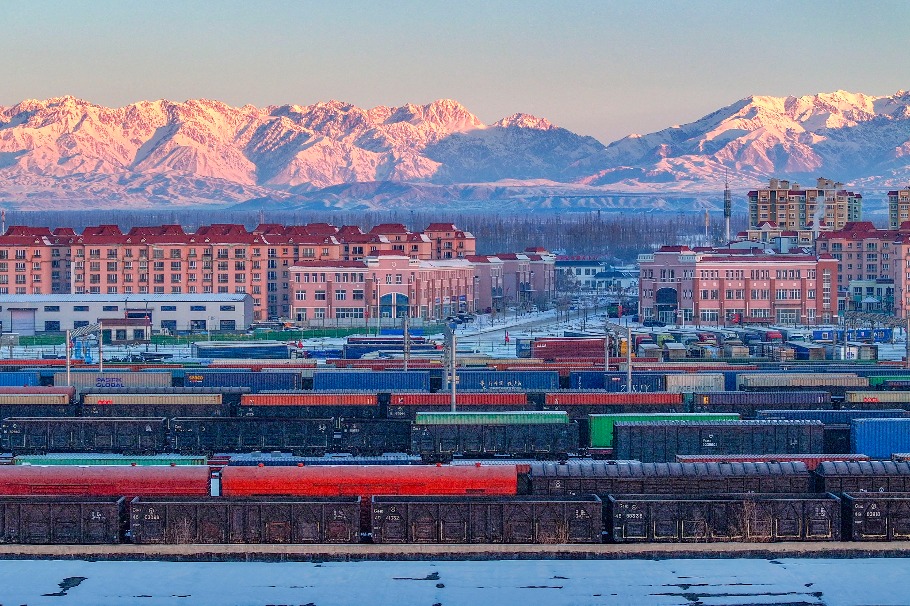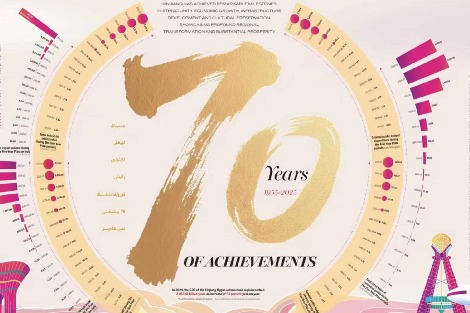Growing recognition of Palestinian state shows public opinion matters


With Andorra, Belgium, France, Luxembourg, Malta, and Monaco formally recognizing the State of Palestine at a recent United Nations meeting, the balance in Europe has tipped irreversibly. The official mission from Palestine at the UN even posted a world map on social media, showing that an overwhelming majority of states worldwide now recognize Palestinian statehood. This is a reality Israeli Prime Minister Benjamin Netanyahu cannot undo, no matter how hard he repeats his uncompromising line that "there will be no Palestinian state to the west of the Jordan River".
Among the many causes, public opinion has perhaps had the greatest impact on international politics. On the streets of Brussels, home to the European Union's core institutions, protesters regularly gather with "Free Palestine" banners, while some demonstrators even hold cultural performances, staging dances at public squares that draw in locals and tourists alike.
Gaza-related topics have consistently dominated online discussions. In June, climate activist Greta Thunberg captured global headlines when she joined a humanitarian mission attempting to deliver supplies to Gaza by boat across the Mediterranean. July and August were all about Israel's Deir al-Balah offensive in the Gaza Strip and the UN confirming famine in Gaza. By September, the Global Sumud Flotilla had sailed again to Gaza, and images of its convoy being attacked by Israeli drones and explosions circulated worldwide, further highlighting the humanitarian crisis in the region.
When Hamas launched its surprise attacks on Israel in October 2023, international opinion was largely sympathetic to Israel, with governments and social organizations alike condemning the violence and affirming Israel's right to self-defense. However, as the conflict dragged on unabated, and the Netanyahu government's military response inflicted mounting casualties on women and children in Gaza, global opinion began shifting.
In today's hyper-connected media environment, this switch in sentiment is such that now hardly any European politician dares to openly side with Israel for fear of alienating voters and losing political capital.
The transformation is stark if one looks back at 1974 when, during a parliamentary debate in the United Kingdom, Lord Boothby thundered: "My lords, the State of Israel must be preserved. We betrayed it at one moment; we must not betray it again." There was a slight change by 2010 when then UK Prime Minister David Cameron said, "Gaza cannot and must not be allowed to remain a prison camp."
Today, the statements from European politicians and public figures have grown even sharper, reflecting how far the needle has swung.
The trajectory shows that soft power is an important component of a nation's influence in the global arena. Israel's hard power, supported by its military strength and strategic alliances, remains formidable, but it cannot fully compensate for the erosion of its image and legitimacy in the eyes of the world. In the long term, the loss of soft power threatens to isolate Israel in ways that military might cannot prevent.
The growing recognition of Palestine is a testament to how public opinion expressed through protests and amplified on social media can shape political outcomes. A quarter of the way through the 21st century, it's necessary for the Netanyahu government to recognize the shift.
The two-state solution remains the only viable framework for lasting peace. This is a fact as well understood in Tel Aviv as it is in Brussels or Washington. Improving humanitarian conditions in Gaza, showing willingness to engage in genuine political dialogue, and easing the suffering of civilians is the only way for Israel to address international concerns and improve its standing in global public opinion.
































